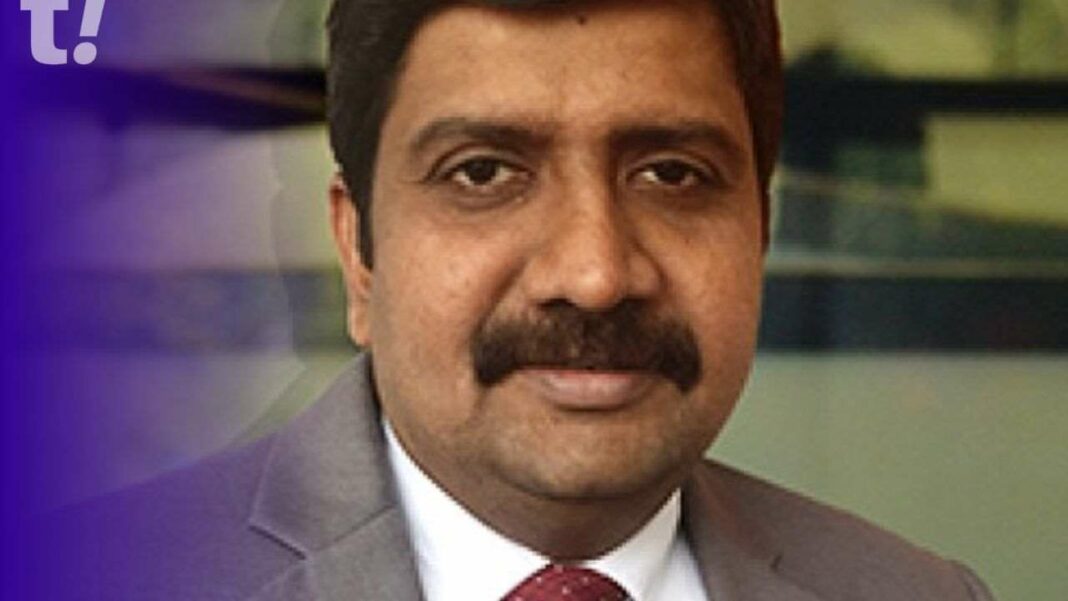In an interview with TechGraph, Karthik Thenkarai, Paycorp Co-founder & Director spoke about how it is using cutting-edge technologies like Machine learning (ML) and Artificial intelligence (AI) to optimize and streamline the recurring payment process for Indian businesses, and more.
Read the complete interview:
TechGraph: Could you give us a sense of how Paycorp came into existence?
Karthik Thenkarai: Paycorp was founded by Karthik Thenkarai (Me), Prashanth Morali, Anish Thomas Alex, Ivan Fernandes, and Balaji Jagannathan. The founding team has more than 25 years of banking and payments experience. We identified that B2B payments are grossly underserved while retail payments take all the limelight.
In August 2020 we launched Paycorp with a focus on recurring payments for the B2B segment. We offer ACH, and UPI, recurring payment options with different digital touchpoints for easy access, including WhatsApp, link push, and Paycorp today has direct interfaces with more than eight banks.
TechGraph: How does Paycorp ensure secure and reliable payment collection processes for its clients? Are there any specific security measures or technologies employed?
Karthik Thenkarai: Paycorp uses different methods such as AADHAR-based authentication, debit card-based authentication, and net-banking authentication to authenticate and authorize recurring payment mandates in real-time.
Hence, both the customer and the merchant will know upfront whether an auto-debit setup was successful or otherwise. Paycorp uses mechanisms such as reminders to maintain sufficient balances and a configurable count of reattempts upon failed collection attempts to maximize payment collection success.
TechGraph: Paycorp operates in a highly competitive industry. How does the company stay ahead of the competition and maintain its market position? Are there any unique strategies or approaches the company employs?
Karthik Thenkarai: Paycorp is usually the first to bring new initiatives on recurring payments to the market. We were the first to roll out end-to-end recurring payments automation for our customers.
We were the first to introduce recurring payment gateways in the country. We constantly improve our automation functions to stay head and shoulders above the nearest competition.
TechGraph: In terms of B2B businesses and Small businesses, how does Paycorp cater to their unique requirements? Can you elaborate on any specialized tools or functionalities designed to facilitate payment collection and recurring payments for this customer segment?
Karthik Thenkarai: A loyal customer improves the margin per customer by over 40%. So businesses are willing to offer steep discounts to customers who subscribe for longer durations.
However timely collection of payments involves frequent follow-ups, so the success rate is below desirable. Introducing automated recurring collection as a part of the service delivery process both increases on-time payment collection and improves customer relationships.
Paycorp provides AADHAAR, Net-banking, and even gateway forms of recurring payments. We offer APIs and link push solutions for corporates to embed recurring payments as part of their transaction flow. Corporates of all sizes can benefit from our recurring payments platform by improving their collection rate and forecasting their cash flow.
TechGraph: What has been the impact of regulatory frameworks, such as data privacy and security and RBI regulations, on Paycorp’s operations? How does the company ensure compliance while innovating and meeting customer needs?
Karthik Thenkarai: Paycorp takes proactive measures when it comes to security and data security. We conduct third-party security testing of our automation solutions every half year. We deploy internationally approved automation in our development environment to guarantee code quality and prevent intentional and unintentional malware penetrations.
TechGraph: Financial technology is a rapidly evolving field. How does Paycorp stay abreast of industry trends and emerging technologies? Can you discuss any ongoing research and development efforts or partnerships the company engages in?
Karthik Thenkarai: We are working on technology solutions involving Machine Learning to improve default prediction probability. We have introduced ENACH Gateway, the first of its kind in India.
We have enabled APIs and link push options to cater to customers at different stages of process automation. We have automated the process of migrating legacy NACH mandates and payments into our platform for a seamless payments collection experience for our corporate customers.
TechGraph: Sustainability and ethical practices are critical considerations for businesses today. How does Paycorp incorporate these principles into its operations and corporate culture?
Karthik Thenkarai: NACH mandates were traditionally signed once by the customer and sent to the banks. Banks used to store them safely after scanning them. The introduction of ENACH has eliminated the practice of signing and storing paper mandates.
Similarly, corporates who sign up with Paycorp source the ACH collection process. We ensure that the entire process is automated. Therefore, the entire process can be completed with the least amount of energy associated with IT expenditure. Since we deploy measures to remind payers in advance, the need to follow up with customers after collection dates is eliminated.
TechGraph: Are there any upcoming developments or innovations in Paycorp’s payment collection and recurring payment solutions that you can share with us? What can we expect from the company shortly?
Karthik Thenkarai: We are working on two major initiatives which we plan to launch this year. The UPI-based auto-pay option will be tightly integrated with the regular ENACH automation platform. The mandate processing will seamlessly switch between ENHACH and UPI-Mandates from a single API.
We are also working on ERupi-based distribution of recurring targeted benefits. As soon as it rolls out banks who are interested in participating in ERupi-based Government benefit distribution schemes can benefit from it.



